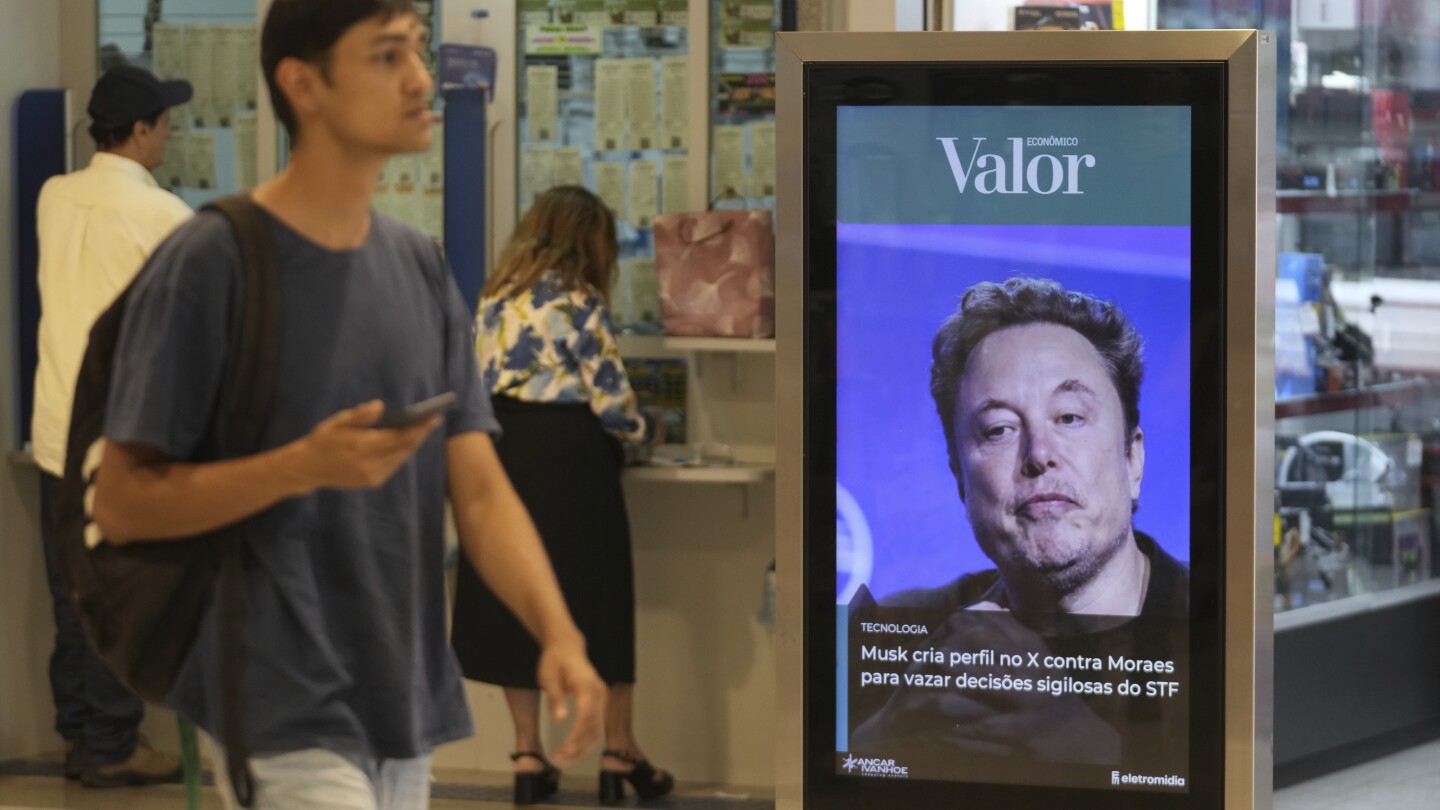SAO PAULO (AP) — Elon Musk’s satellite-based internet service provider Starlink backtracked Tuesday and said it will comply with a Brazilian Supreme Court justice’s order to block the billionaire’s social media platform, X.
Starlink said in a statement posted on X that it will heed Justice Alexandre de Moraes’ order despite him having frozen the company’s assets. Previously, it informally told the telecommunications regulator that it would not comply until de Moraes reversed course.
“Regardless of the illegal treatment of Starlink in freezing our assets, we are complying with the order to block access to X in Brazil,” the company statement said. “We continue to pursue all legal avenues, as are others who agree that @alexandre’s recent order violate the Brazilian constitution.”



A country’s airspace does not extend into space. A nation’s sovereignty over its airspace typically ends at the point where outer space begins, but there is no universally agreed-upon boundary between airspace and outer space.
Most commonly, the boundary is considered to be at the Kármán line, which is located at an altitude of 100 kilometers (62 miles) above sea level. Everything below this is generally considered sovereign airspace, while everything above it is considered international space, not subject to any one country’s control.
🏅
Congrats, here’s a pedant pendant
It’s not pedantic to educate people on the Kármán line. Otherwise they would say inaccurate things like “everything above them is theirs, forever” which is obviously not true.
I’m pretty sure whoever stands directly under the moon owns it
Gotta put a flag on it.